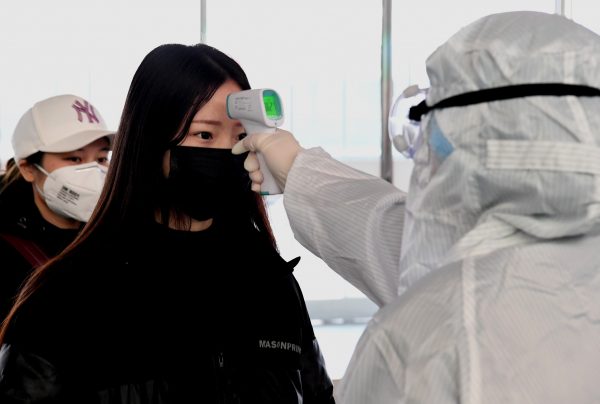Though the overwhelming majority of cases have appeared in China, cases are now appearing throughout Asia and further abroad. This rapid spread of a novel coronavirus (2019-nCoV), combined with the lack of a known treatment, has provoked international panic.
For many, this emergency brings up memories of Severe Acute Respiratory Syndrome (SARS). Over 8000 people in nearly 30 countries and territories fell ill and 774 people died before the World Health Organization (WHO) declared the outbreak ‘contained’ in July 2003.
Beyond the human toll, the SARS outbreak led to significant economic losses, challenged the authority and legitimacy of the Chinese government and fostered prejudice against Asians for spreading the disease. With the new coronavirus, news stories are comparing SARS and 2019-nCoV and claiming that the economic and political effects may be even greater.
The spread of 2019-nCoV will not stop without concerted action by national and international officials. In China, the government has allowed international experts to assist with its response, sought to counter rumours and false information and is building two new hospitals — set to be completed within two weeks — to house patients at the epicentre of the crisis. More problematically, it effectively quarantined almost 60 million people in 17 cities by shutting down transportation networks and restricting public gatherings. The government argues that implementing the largest ever known quarantine measures will prevent the disease from spreading.
But not all of the actions taken so far are likely to be effective. Some of the Chinese government’s actions fly in the face of best practice. While it is attempting to quash rumours about the new disease, China is also arresting people who criticise the government’s response. The increased burden on health care workers has raised stress levels, too, with nurses in Hong Kong threatening to go on strike unless the city authorities close the borders with mainland China.
Efforts to quarantine present additional challenges. When governments implement new measures, people try to find ways around them. As a result, it becomes even harder to trace people who may have potentially been infected. An estimated 5 million people fled Wuhan right before quarantine came into effect, according to the mayor — undermining the policy.
These sorts of difficult measures also erode trust in government and public health programs, when trust is vital in stopping any epidemic. Reports of local officials having actively tried to suppress information about the early cases of 2019-nCoV fuels rumours that make it harder for people to learn the facts. This loss of trust also means that people are less likely to utilise healthcare services and won’t be treated promptly if they fall sick.
Global partners play a key role in halting epidemics, but the international community’s response so far has been inconsistent. The WHO finally declared 2019-nCoV a Public Health Emergency of International Concern (PHEIC) on 30 January. This designation — only the sixth of its kind ever made by the WHO — recognises that 2019-nCoV is a novel disease that has spread internationally and will likely disrupt international travel and trade.
A PHEIC declaration moves the issue to the top of the global health agenda and helps to concentrate international attention and resources. It also allows the WHO to issue travel advisories and foster increased international cooperation. While a welcome move, it comes a week after the WHO refused to make such a declaration, arguing that the disease was largely confined to China. This decision gave the virus another week to take hold and spread across borders.
The delay meant that countries implemented travel warnings and other policies independently without coordinated action. This has increased fears about potential economic costs as governments and private companies restrict their trade with China. But astonishingly, US Secretary of Commerce Wilbur Ross suggested on 30 January that 2019-nCoV could be a boon for the US economy by bringing jobs to the United States from China.
Even more troubling is the spread of fear and prejudice. Reports suggest an increase in anti-China sentiment in countries around the world, with Chinese people being blamed for causing and spreading the disease. This sort of discrimination directly works against efforts to stop the outbreak.
There is much we do not yet know about the science and origins of the 2019-nCoV. But we do know what steps are effective in halting outbreaks: open communication, international partnerships and targeted action. Now is the time for policymakers in China, Asia and the rest of the world to step up to protect everyone’s health.
Jeremy Youde is a political scientist and Dean of the College of Liberal Arts at the University of Minnesota Duluth.
This article is part of an EAF special feature series on the novel coronavirus crisis and its impact.

